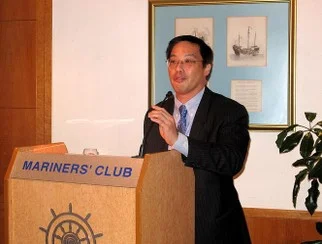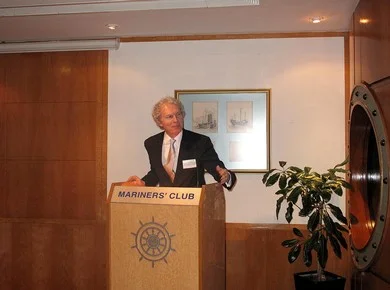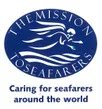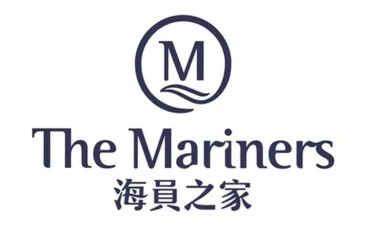port welfare
23 April 2009
Mr Kenneth Koo Chairman Port Welfare Committe opening address
We often hearabout Hong Kong, the International Maritime Center, the world class port driven by a world class maritime cluster, how Hong Kong's pulse reflects the pulse of world trade.
Welcome, honored guests, to the Heart of Hong Kong's maritime industry. Not "heart" as in "center" of all things maritime but "Heart" as in compassion and care. The "Heart" that welcomes weary seafarers from all points of the world. A "Heart" that gives care and compassion to seafarers whether homesick or truly sick. Seafarers who need a guiding hand and a comforting hand. This is what port welfare is about. And this is what tonight's gathering is all about. A gesture of heartfelt gratitude to all of yourselves, our honored guests, who contributed so greatly toHong Kong's port welfare all these years through your continued donations to the Port Welfare Committee.
Tonight is also a celebration of Hong Kong's success as a maritime center, not only because of the prominent international maritime enterprises and maritime expertise that callsHong Kong home but also because of the care and compassion your Port Welfare Committee promotes for visiting seafarers.
This includes coordinating, on behalf of our Hong Kong Government, the provision of social and recreational welfare for these foreign seafarers visiting Hong Kong as a port of call and those temporarily residing in Hong Kong consequent upon discharge for health and other reasons, awaiting re-engagement or repatriation. Another major thrust of your Port Welfare Committee's activities is dedicated towards allocating grants and monies received through your support for the social and recreational welfare of seafarers .
Port welfare is a still largely anonymous behind-the-scenes effort that contributes greatly toHong Kong's popularity as a world class port. While the glitterary of Hong Kong, a perennial top performer as a container port, a ship finance center, and centers for maritime arbitration and marine insurance, etc. continually receives accolades from the world over, port welfare inHong Kong goes largely unnoticed. But for our seafarers, the people on the "frontlines" and "trenches" who makes "Maritime" work. The care they receive from the chaplains of many different nationalities based in Hong Kong and the facilities, such as that of the Mariners Club, where this special event is held this evening, enables them to at least callHong Kong a "home away from home".
No, port welfare will not make a lot of glamorous headlines when we talk about world class ports and world class maritime clusters. But port welfare is truly "The Heart" of thePort ofHong Kong which demonstrates care and compassion to seafarers.
Your support to the Port Welfare Committee has been and continues to be the critical pillar which sustains the port welfare activities inHong Kong. On behalf of all my esteemed Port Welfare Committee members, I hope that you will continue to support this very worthy cause.
The most important recipient of your donations for the port welfare of Hong Kong is the Sailors Home & Missions to Seafarers, an organization that works tirelessly to welcome tired seafaring souls from all points of the Seven Seas to be rest assured that in the Port of Hong Kong, they will find the comfort, the care and the guidance to strengthen and fortify themselves for even more challenges ahead in their seafaring endeavors. Together the Port Welfare Committee and the Sailors Home & Missions to Seamen endeavors to provide everything from spiritual work to the providing of food, drink and accommodation to seafarers during their stay in Hong Kong.
And on this note, I am very honored and, indeed, proud to invite Mr. Anthony Nightingale, Director of Jardine Matheson Limited and Chairman of the Sailors Home & Missions to Seamen who will introduce and update all of yourselves, the
Activities and the current status of both theMission and the Mariners Club.
Thank you Kenneth, and a warm welcome to everyone here tonight. I would also like to take the opportunity to thank those of you here who have shown your support for the Mission in the past through your donations to the Port Welfare Committee.
I would now like to briefly tell you something of the history and the work of the Mission to Seamen. The Hong Kong Mission began life as an Anglican Mission in 1884, before becoming the Ecumenical Ministry it is today, which includes the Apostleship of the Sea who joined in 1969, The Danish Seamen's Church who joined in 1979, and The German Seamen's Mission who most recently joined in 1995. For more than 150 years, the Hong Kong Mission has been providing vital support and assistance to seafarers from around the world – looking after their social and spiritual wellbeing, and in doing so, has played its part in the development and success of the Hong Kong shipping industry.
While the shipping industry has changed dramatically over the years since the inception of the HK Mission, many of the problems facing seafarers - loneliness, danger and separation from partners and families have remained unchanged. The Mission, through its average of 5,000 annual ship visits and more than 400 annual hospital visits, provides a vital support network for seafarers facing many of these problems.
In addition to providing the opportunity to discuss openly social and spiritual matters, the Mission also provides seafarers with much needed access to the outside world. The provision of current newspapers in multiple languages, arranging of services such as cash remittances and overseas calling cards for those not able to return to shore, and offering transport to allow crews a few hours shore break in the daytime all go a long way to improving the general wellbeing of seafarers.
Looking after the wellbeing of seafarers has also meant the provision of facilities to use and enjoy while on land. Since the very first Mission in 1884, a Sailors Home and Chapel has always been provided, and today, the Mission operates both this Tsim Sha Tsui clubhouse opened in 1967, and the Kwai Chung clubhouse opened in 1975.
By offering these facilities – namely food and beverage and accommodation, the Mission not only provides a useful service to the shipping community, but it is also intended that it can generate a portion of the income needed to fund its vital work. This income needs to cover the operating costs of the clubhouses and the Mission’s vessel as well as the spiritual work of the Mission.
With significant changes to the shipping industry over the years, such as the drastic reduction in the number of crew required to operate and load ships and the time required to turnaround a ship, the facilities at the Mariners’ clubhouses have become increasingly less utilized. As a result, the income generated by the Mission has decreased to the point where it has had to draw down considerably on its endowments to fund its operations.
After having made you all aware of the clubhouse facilities and the importance that their usage means to the work of the Mission, I encourage you all to consider the Mariners’ club next time:
· you are sending men ashore;
· the Mission’s vessel visits one of your ships;
· or you have accommodation and conference needs for any of your land based staff
Because by encouraging and making use of the clubhouse facilities, you are not only contributing to the welfare of seafarers, but also the financial security of the Mission.
I realize that with the world’s current difficult economic situations this is not an easy time for the shipping industry and I would like to close by thanking you once again for all coming here tonight and showing your support for the work of the Mission, which I hope you will continue to demonstrate through increased usage of the clubhouse facilities and donations to the Port Welfare Committee.



